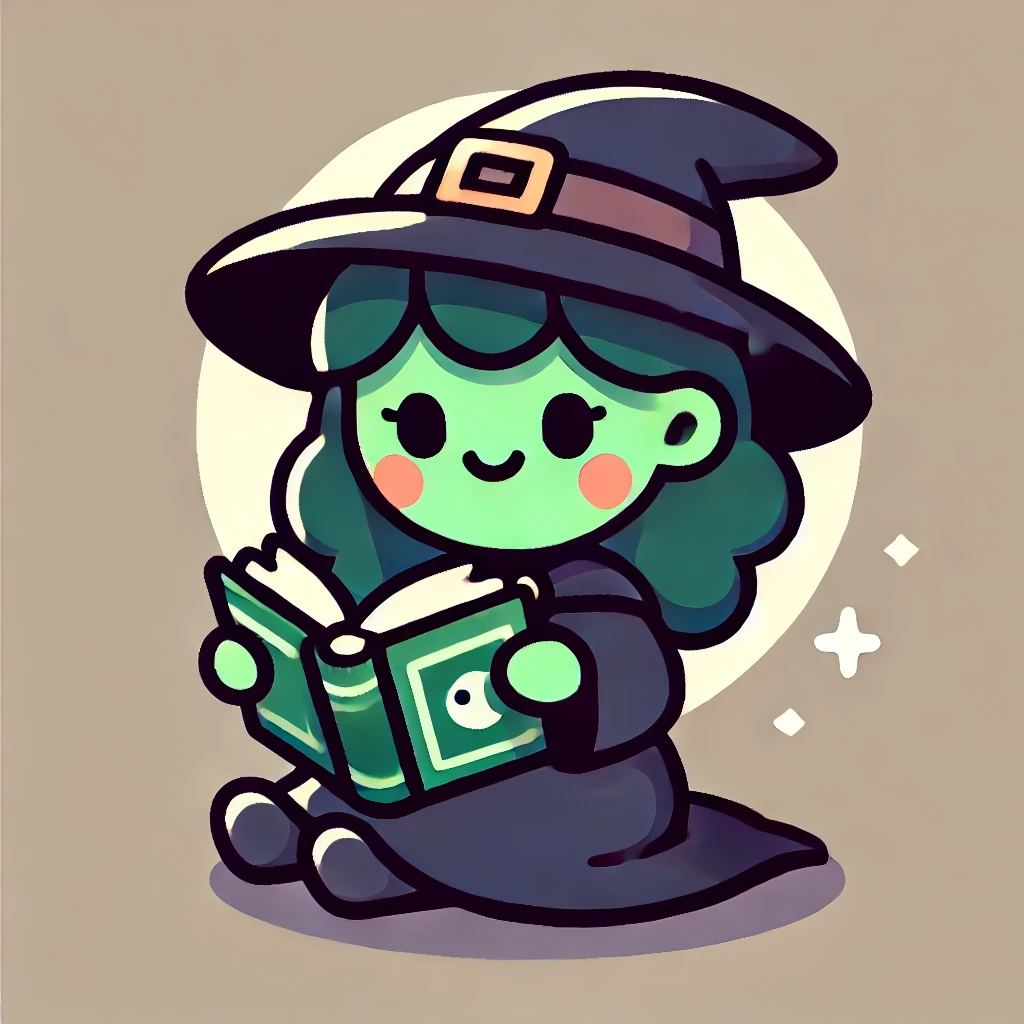pruehalliwell started reading...

The Ballad of Never After (Once Upon a Broken Heart, #2)
Stephanie Garber
pruehalliwell finished reading and wrote a review...
my first fredrik backman:) I really liked the writing style, it was really funny and heartfelt at the same time. The story was also unique, i liked the nonlinear storytelling and the different unreliable points of view. However, the best part were the characters. as the narrator says this is a story about "idiots", a tale about a bunch of people with flaws, quirks and different personalities each of whom has their own thing going on. These characters are beautifully crafted, they are not perfect but you cannot help but care about them. They feel real for their humanity and they are loveable because you know deep down they are trying their best. Mental health is one of the major issues tackled in this book and i believe it is done pretty realistically. Overall, it was a very enjoyable read. It's a book I think anyone mught enjoy and can relate to in one way or another. It is also a story that feels somehow hopeful, and that brings you so much joy while reading it. I am definitely looking forward to reading more from the author.
Post from the M Train forum
the way she waited in the toilet until her usual seat at the café was avaikabe.... we are the same person
pruehalliwell started reading...

M Train
Patti Smith
pruehalliwell finished reading and wrote a review...
Tbh I went into this thinking it was psychological horror and not supernatural. This was my first Nat Cassidy and it was a nice experience. The author has a knack for making you care about the characters even though they are flawed. The relationships between them also feel very real and I'd say Jessa and the kid's bond was really beautifully crafted. The plot, however, was a bit weak in my opinion. I was able to predict one of the major twists in the book pretty early on so it didn't hit me with an element of surprise as it should have done. Overall, it was a fun reading experience, and I am open to reading more from this author.
pruehalliwell started reading...

When the Wolf Comes Home
Nat Cassidy
pruehalliwell finished a book

The Sun Also Rises: (Penguin Classics Deluxe Edition)
Ernest Hemingway
pruehalliwell commented on a post
Vanessa Angélica Villareal’s memoir is one that initially caught my attention because of the title. I’ve always been fascinated by the magical realism genre, and it really intrigued me to see how an author that identifies as a mestiza could work with the concept in their own memoir. But, as the title suggests, the book is not only a memoir but also a collection of essays on identity, magic, and media. She draws from the name of the genre of magical realism, and the way it works, to talk about a number of concepts and memories of her life, emphasizing fantasy’s way of enabling healing from trauma. In general, I’d say the book is divided in two main parts: one that’s 100% a memoir and a second part that’s more focused on an direct application of the concepts she talked about briefly in the first one in different essays. In the first one, the author looks back to her childhood and how her race impacted the way she grew up, the way she was treated and, most importantly, the way she saw/and sees herself. She discusses concepts that have been written about by other mestiza authors like the trauma that comes from this dual identity and the parents willingness to erase the past so they could integrate into American society. Vanessa Angélica Villareal talks about how hard it was (and still is) for her to retrieve information about her family. How so much memory of it has been willingly erased and how traumatising for her it was to grow up this way. She also discusses the concept of “the border” that separates Mexican-Americans from their past, and that also divides their identity into this same duality. But this first part is not entirely memoiristic, as throughout it, the author also incorporates some general ideas about the expectations she grew up with, how she was supposed to be, behave and act in order to be accepted. This allows her to play with the traditional form of a memoir to also include everyone else who grew up as this way and who might have experienced a similar trauma from it. Moreover, she also anticipates some ideas that she will discuss in the second part, such as the part that fantasy played in her acceptance of who she was, and the way that cultural products like music, literature and videogames helped her understand herself and the world. In the second part, the author changes the style of the book to a more pure form of the essay (although it’s important to remark that she never leaves the memoir part completely, as she still draws the topics she discusses from her own experience and the products she consumed). She discusses how all the topics she briefly talked about while discussing her own experiences can be read on different forms of media. She talks about videogames, and how the fantasy worlds depicted in them can be read from a colonial point of view as they depict a vision of a world that a cis-white dominated world, where people who fall into this norm are depicted as the only heroes. She also discusses literature, and how it continues to exclude and marginalize poc-authors; and about language, and how it’s used to convey a certain way of perceiving the world. But most importantly, and as the book’s title indicates, she talks about magic and fantasy and how they can be — and are — used to explore ideas that are central for mixed authors, like the concept of the border (which she explores is a great final essay in which she reads Game of Thrones from this point of view), as well as the way they provide a form of escapism from a world in which they feel fractured. Overall, this is a fantastic memoir, one of the best ones I’ve read this year that I think anyone should read. The concepts she talks about are easily accessible to readers, even probably those who might not be familiar with them, as she draws upon her own examples and experiences. The ideas she explores are important and relevant, even more considering what’s going on in the U.S. at the moment. Vanessa Angélica Villareal has done an amazing job with this book, and I think it’s worth giving it a chance. She talks about more topics that I could not discuss in this short review so as to not make it too long. She will make you think and reflect upon the world we live in.
pruehalliwell finished reading and left a rating...
Post from the Magical/Realism: Essays on Music, Memory, Fantasy, and Borders forum
Vanessa Angélica Villareal’s memoir is one that initially caught my attention because of the title. I’ve always been fascinated by the magical realism genre, and it really intrigued me to see how an author that identifies as a mestiza could work with the concept in their own memoir. But, as the title suggests, the book is not only a memoir but also a collection of essays on identity, magic, and media. She draws from the name of the genre of magical realism, and the way it works, to talk about a number of concepts and memories of her life, emphasizing fantasy’s way of enabling healing from trauma. In general, I’d say the book is divided in two main parts: one that’s 100% a memoir and a second part that’s more focused on an direct application of the concepts she talked about briefly in the first one in different essays. In the first one, the author looks back to her childhood and how her race impacted the way she grew up, the way she was treated and, most importantly, the way she saw/and sees herself. She discusses concepts that have been written about by other mestiza authors like the trauma that comes from this dual identity and the parents willingness to erase the past so they could integrate into American society. Vanessa Angélica Villareal talks about how hard it was (and still is) for her to retrieve information about her family. How so much memory of it has been willingly erased and how traumatising for her it was to grow up this way. She also discusses the concept of “the border” that separates Mexican-Americans from their past, and that also divides their identity into this same duality. But this first part is not entirely memoiristic, as throughout it, the author also incorporates some general ideas about the expectations she grew up with, how she was supposed to be, behave and act in order to be accepted. This allows her to play with the traditional form of a memoir to also include everyone else who grew up as this way and who might have experienced a similar trauma from it. Moreover, she also anticipates some ideas that she will discuss in the second part, such as the part that fantasy played in her acceptance of who she was, and the way that cultural products like music, literature and videogames helped her understand herself and the world. In the second part, the author changes the style of the book to a more pure form of the essay (although it’s important to remark that she never leaves the memoir part completely, as she still draws the topics she discusses from her own experience and the products she consumed). She discusses how all the topics she briefly talked about while discussing her own experiences can be read on different forms of media. She talks about videogames, and how the fantasy worlds depicted in them can be read from a colonial point of view as they depict a vision of a world that a cis-white dominated world, where people who fall into this norm are depicted as the only heroes. She also discusses literature, and how it continues to exclude and marginalize poc-authors; and about language, and how it’s used to convey a certain way of perceiving the world. But most importantly, and as the book’s title indicates, she talks about magic and fantasy and how they can be — and are — used to explore ideas that are central for mixed authors, like the concept of the border (which she explores is a great final essay in which she reads Game of Thrones from this point of view), as well as the way they provide a form of escapism from a world in which they feel fractured. Overall, this is a fantastic memoir, one of the best ones I’ve read this year that I think anyone should read. The concepts she talks about are easily accessible to readers, even probably those who might not be familiar with them, as she draws upon her own examples and experiences. The ideas she explores are important and relevant, even more considering what’s going on in the U.S. at the moment. Vanessa Angélica Villareal has done an amazing job with this book, and I think it’s worth giving it a chance. She talks about more topics that I could not discuss in this short review so as to not make it too long. She will make you think and reflect upon the world we live in.
pruehalliwell started reading...

The Sun Also Rises: (Penguin Classics Deluxe Edition)
Ernest Hemingway
pruehalliwell finished a book

Bury Our Bones in the Midnight Soil
Victoria Schwab
Post from the Magical/Realism: Essays on Music, Memory, Fantasy, and Borders forum
doing a lot of thinking while reading this so expect a review when i'm done because this might be one of the best memoir-esque pieces of nonfiction i've ever read
pruehalliwell commented on a post
am i the only one who's not fully convinced on this book???? i love the vibes and schwab's writing is always top notch but the story itself isn't doing it for me....
pruehalliwell DNF'd a book

Le Corps Lesbien
Monique Wittig
pruehalliwell paused reading...

Mercies: Selected Poems
Anne Sexton
pruehalliwell paused reading...

The Spirit Bares Its Teeth
Andrew Joseph White
Post from the Bury Our Bones in the Midnight Soil forum
am i the only one who's not fully convinced on this book???? i love the vibes and schwab's writing is always top notch but the story itself isn't doing it for me....








